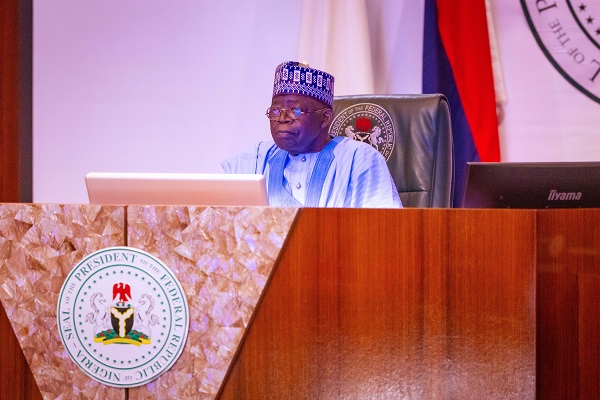- He identified a lack of social amenities and inadequate funding for education as key factors that push people toward corrupt practices.
- Tinubu highlighted the importance of ensuring that workers receive a living wage as part of his strategy to combat corruption.
President Bola Tinubu has advocated for a holistic approach to combat corruption in Nigeria, focusing on addressing the root socioeconomic causes.
In his inaugural media chat, Tinubu underscored the importance of improving living standards, ensuring access to basic amenities, and providing fair compensation to reduce corruption.
“Corruption in all ramifications is bad, but first of all, pay enough attention to the causes,” he stated.
Tinubu identified two key factors contributing to corrupt practices: inadequate social amenities and insufficient education funding.
He emphasized the significance of guaranteeing a living wage for workers. “Pay them good and living wages. I increased the minimum wage, and to me, that is fighting corruption,” he explained.
Tinubu stressed that creating an environment with access to basic necessities and opportunities will reduce the temptation to engage in corrupt activities.
He reiterated his faith in free market forces to address economic challenges, noting that price control is not the solution.
Tinubu highlighted his administration’s approach to managing market dynamics, boosting agricultural productivity, and tackling corruption at its core.
“I don’t believe in price control. It’s a question of supply and demand,” he responded.
Tinubu explained that increasing supply is crucial to stabilizing prices, citing the fuel market as an example. “We just continue to supply the market. It will come to a stage where you cannot hoard no more. The economic variables will work against you,” he said.
Tinubu advised Nigerians to enhance their resource management skills and adapt to the country’s shifting economic landscape.
He emphasized the importance of mechanized farming in revolutionizing Nigeria’s agricultural sector. “We will give more incentives to the farmer. Mechanized farming is better for us in Nigeria,” he stated.
Over 2,000 tractors are expected to arrive in the country to modernize farming and increase productivity, ensuring food security and reducing reliance on imports.
